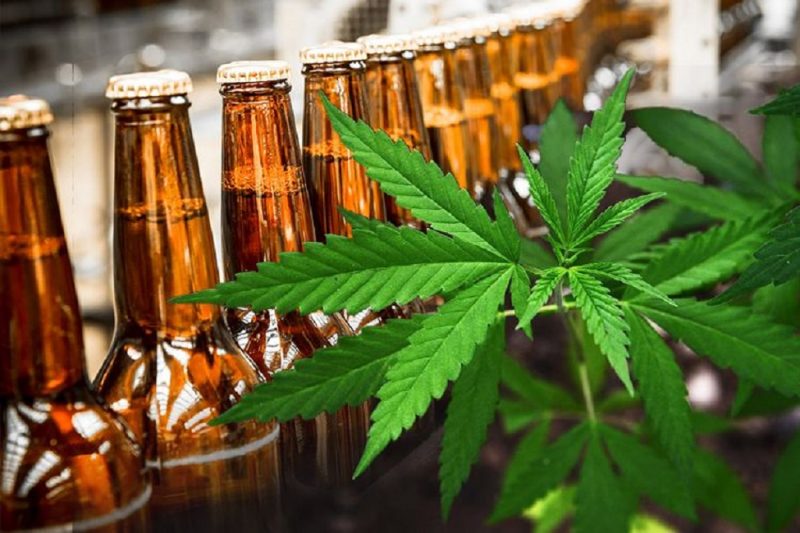Research shows cannabis could be major competitor for alcohol
“We can infer a reduction of 10.9 percent in alcohol searches after recreational cannabis legalization relative to the average of the pre-treatment period,” wrote the researchers
A new article published in the journal Marketing Science delves into a topic that has boggled the brains of many: Which mainstream industry does cannabis stand to be the biggest contender for?
While a lot of people may have bet their money on the tobacco industry being the worst-impacted as a result of cannabis legalization unfurling across the United States, researchers discovered that the alcohol industry stands to get hammered by legal weed.
University of Georgia scientists pulled cannabis search data from U.S.-based web portal
A group of scientists fronted by the University of Georgia’s Pengyuan Wang of the Terry College of Business prepared a test to discover the web-browsing behavior of people following the legalization of cannabis. In particular, the aim was to find out if searches for tobacco and alcohol rose or reduced after legalization.
Scientists from the University pulled data from a U.S.-based web portal to ascertain precisely what people were searching online from the start of 2014 to the middle of 2017. They also focused on advertising revenue and click-through rates.
A vast proportion of the data was sourced from states that have legalized cannabis for adult-use purposes between doing the time period; Alaska, California, Maine, Massachusetts, Nevada, and Oregon.
With the information they gleaned from their study, the scientists hoped that they would gain an accurate insight into potential changes in consumption behavior and amidst the “Green Rush” that has caught on in 33 U.S. states.
In total, around 120 million cannabis, alcohol and tobacco-related ad impressions were analyzed by the team, in addition to approximately 28 million Internet searches.
Cannabis search data study: What else did they find?
As the researchers anticipated, the cannabis search data demonstrated a significant increase in the volume of weed-related terms post-legalization. It should be noted that the researchers discovered a major reduction in search volumes for alcohol-related terms post-legalization.
“We can infer a reduction of 10.9 percent in alcohol searches after recreational cannabis legalization relative to the average of the pre-treatment period,” wrote the researchers.
A similar trend was noticeable for cannabis-related advertising revenue and click-through rates, leading researchers to believe that cannabis is emerging as a substitute for alcohol.
When it comes to tobacco-related search data, the researchers discovered that searches, advertising revenue and advertising impressions soared post-legalization. These results suggest that, while the cannabis plant may be favored as an alternative to alcohol, legalization could be stimulating the tobacco market.
“Historically, both alcohol and tobacco companies have been actively sponsoring/supporting campaigns against recreational cannabis legalization because they are strongly concerned that legal [cannabis] may pose threats to them. However, our results suggest that tobacco companies may need to re-examine their presumption and that anti-cannabis legalization is not in their best interest,” concluded the authors.








